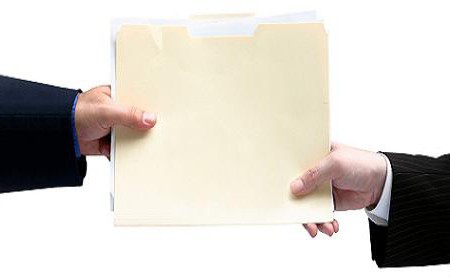To conduct business, the company needs different fixed assets. At the same time, it is not necessary to acquire property in ownership. The company may well get the OS for free urgent use. Let us further consider the nuances of this procedure.
General information
Transfer to gratuitous use has a number of specific features. In practice, it is often confused with the free acquisition of objects. However, there is a fundamental difference between these procedures. Free acquisition of an operating system implies the transfer of ownership to the receiving party, and when the objects are provided for free use, the original owner does not change.
Transaction subject
The right of gratuitous use extends exclusively to individually defined things. As the subject of the transaction may be different objects. Currently, free use of real estate is quite popular. It includes land plots, enterprises, constructions, complexes of buildings, isolated objects of nature , etc. These things should be non-consumable - not losing their natural characteristics during operation. This rule provides guarantees for the fulfillment of obligations by the recipient to return the object. Using this restriction, the parties to the relationship should understand that not so much the properties of the subject as such, but the relationship with the specifics of its use provided for in the terms of the agreement will matter. That is, the operation of the object does not prevent its return in kind. For example, food is undoubtedly consumable things. However, this does not preclude their transfer for urgent use for display at an agricultural exhibition. Equally important is the individual certainty of a thing. This property allows you to evaluate whether the recipient has fulfilled the obligation to return the object in kind or not.

Exceptional Deals
Gratuitous use of real estate has a number of restrictions. In Art. 607 of the Civil Code there are links to special laws on certain conditions for concluding a transaction. In particular, we are talking about the possibility of establishing a list of objects, free rental of which is limited, prohibited or carried out according to special rules. Paragraph 2 of this norm provides for the establishment of a special regime for land plots and other isolated natural complexes. Such laws, referred to in the article, are of an exceptional nature. By virtue of this, they cannot relate to gratuitous transfer agreements unless they contain the corresponding instructions. Given the dispositiveness of the norm , contradictory situations are not excluded at first glance. For example, items whose rental is prohibited can be transferred to free use. Moreover, under certain conditions , objects withdrawn from circulation may participate in the transaction . Such situations are caused by the fact that gratuitous use of real estate or other means implies limited powers in relation to things, in comparison with urgent operation for a fee.
Transaction participants
The entity providing the object may be a person authorized to dispose of it. Accordingly, the recipient may be one who has the legal ability to exploit the thing under the terms of the agreement. The first participant is dedicated to Art. 690 Civil Code. In the norm there is an indication of the possibility of providing property only by owners or other persons authorized by it or by law. In this case, the owner of the object may be subject to certain restrictions. For example, in Art. 346 CC established that the mortgagor can provide the object for free use only with the consent of the mortgagee. A subject authorized by the owner may be a commission agent who acts within the scope of the order. A somewhat smaller amount of legal capacity is provided for the trustee. He can make various transactions, make gratuitous use of real estate, but only in the interests of the beneficiary.
Bans
The fact that the provision of an object under a loan agreement is free of charge requires limiting in some cases the possibility of its conclusion. According to general rules, prohibitions are aimed at ensuring the protection of interests not only of the entity entering into the transaction, but also of other persons. The latter are mainly lenders, as well as participants in partnerships and other business entities. One of the prohibitions is present in Art. 690 Civil Code. The norm does not allow the provision by a commercial organization for free use of items to a person who is its founder, leader, participant, member of a control or administrative body. This is due to the fact that these entities can indirectly or directly affect the formation of the will of society itself. For example, to influence the borrower to enter into an agreement aimed at obtaining benefits for persons referred to in Art. 690, paragraph 2, contrary to the interests of the enterprise with which they are associated. In such cases, the nature of the transaction will be taken into account, which obviously does not correspond to the main objective of the organization. In addition, restrictions may apply to representation. 37 of the Civil Code, clause two provides trustees and guardians with ample opportunities to dispose of objects belonging to the ward. However, this establishes a list of transactions that may be completed or to which representatives can agree only with permission from a government agency.

Nuance
As a rule, there are no grounds for establishing restrictions for the second party to the transaction. Moreover, taking into account that the agreement is in the interests of, first of all, the recipient, the legislator in some cases considers it reasonable and necessary to exclude it from existing prohibitions. For example, by not allowing transactions by trustees / guardians, their spouses and relatives with their wards, article 37 in paragraph three provides for the possibility of transferring property to the latter for free use and in the form of a gift.
Special cases
There is a special rule in the Civil Code, the action of which is aimed at maintaining the agreement when changing one of its participants. The thing is that the lender remains the right to alienate the subject of the contract or to provide it for reimbursable use. Art. 700 Civil Code in this case provides for a special regime. In particular, the purchase or lease of premises / structures / buildings and other objects involves the transfer of legal opportunities to the new owner or operator under a previously concluded loan agreement. In this case, the corresponding burden is established. This article also provides for different types of succession by the lender. In the event of the death of a person or reorganization of an enterprise, their duties and legal capabilities shall be transferred to the heir or to another person having the corresponding powers. The circumstance is specially stipulated that when converting any type of obligation and right, a person acts as a successor, if the other does not follow from the meaning of the loan agreement. Other rules apply to the acquirer. So, in the event of the death of a citizen or reorganization of the enterprise, the loan agreement is terminated, unless otherwise follows from its conditions.

Free use agreement: sample
The conclusion of the agreement is carried out by the parties voluntarily. It should be noted that gratuitousness implies certain obligations for organizations acting as lenders. For example, in accordance with the Federal Law "On Librarianship", it has been established that each enterprise and citizen can temporarily receive any documents from institutions that are partially or fully financed from the federal, regional or local budgets. In ch. 36 of the Civil Code there are no special rules governing the procedure by which an agreement is to be concluded, and its form is determined. In addition, Art. 609 is not included in the list of articles referenced in art. 689, paragraph 2. In this regard, when drawing up an agreement, it is necessary to be guided by general rules. In particular, this means that if free rental of premises is carried out, the cost of which is not less than 10 times the minimum wage, a transaction between citizens is executed in writing. If an agreement is concluded between an individual and an enterprise, then this form is mandatory regardless of the price of the object. In other cases, verbal execution of the transaction is allowed, as well as through the conduct of actions (indicating appropriate intentions). The written form of the agreement shall indicate the subject of the transaction, the obligations and rights of the parties, the period during which the use of the premises or other object will be carried out, the responsibility of the participants, the rules of return.

Additionally
In case of violation of the requirements for compulsory written execution, the consequences stipulated by Art. 162 Civil Code. In particular, in the event of a dispute, it is forbidden to refer to testimony in support of the transaction and the establishment of its conditions. In the cases provided for in Articles 164 and 131 of the Civil Code and federal law, a contract for gratuitous use must be registered. As a general rule, an agreement will be considered effective after this procedure.
Accounting
Fixed assets that were received for free use should be reflected in the off-balance account 001. When the OS is provided, relevant documents are drawn up. The act of transfer is one of them . A sample of this document serves as the basis for recording the estimated value of the debit account. 001. In addition, an inventory card for f. OS-6. It makes a corresponding note about the gratuitous use and transfer of funds to the off-balance account. Inventory cards for such facilities should be kept separately. Upon termination of the agreement and the return of the OS should:
- Issue an act on f. OS-1.
- Make an entry in the inventory card on the removal of fixed assets from the off-balance sheet account.
- Write off credit 001 value of the property.
Responsibility
In the process of using property, damage may be caused. Responsibility for its application is established by Ch. 36. According to Art. 697 it is provided for the lender, if he can not prove that the damage was caused by gross negligence or the intent of the recipient or the person whose subject was with his consent. The basis for the removal of liability from the causer of harm is the absence of his fault. This position is established by Art. 1064 Civil Code (p. 2). The lender, therefore, can be guided by this rule if both the beneficiary and his own are absent at the same time.